This year, I’m focusing on doing less. My days are spent talking with writers and creators, which is part of the work I do, but also a part of who I have always been. I grew up as an artist, and have had the pleasure of being surrounded by those who create my entire life.
Nowadays, so many writers express to me that they feel stretched too thin, frustrated at their lack of progress, and like time is running out. They work to resolve this, but the result is to pack even more expectations and obligations into their already busy lives. In the process, guilt and shame creeps in. They worry that they should be doing more, that they aren’t achieving what they hope, and that there must be something wrong with them.
As someone who writes and creates, and is surrounded by those who do as well, this is my hope:
- To feel great about who you are. Not who you hope to be, or how you imagine others see you, but to feel great about who you are right now. A couple of years ago, my youngest son watched every episode of Mister Rogers — twice. That is around 1,800 episodes in a row. Echoing throughout our home during that time was the ceaselessly repeated words from Fred Rogers: “I like you exactly as you are.” Sometimes I think this is the most powerful phrase in the world, especially when said to oneself.
- To devote yourself to a craft. Whether that is the craft of writing, art, connection with others, or however you define it. And in the process, to let go of feeling stretched too thin, out of sync with the world around you, and doing 1,000 things… poorly.
- To feel a sense of connection with others. Especially with those who resonate with your craft. So often as adults, we lose the ability to form new relationships or deepen those we have. We tend to create bonds when society makes it easy: classmates at school, colleagues at work, parents in your kid’s classes, neighbors, and fellow members of a religious community. But we lose our ability to seek out and strengthen relationships with those around other themes that light you up inside, especially around your craft. Wouldn’t it be wonderful to feel you have a thriving network of people who you would love to talk with about ideas and inspiration?
I want you to pursue a life filled with creativity, celebrating who you are, and connecting with people in a meaningful way. That may require you to make some changes. While some people do that in big dramatic ways, I tend to take an opposite approach: to calmly and quietly focus more energy on a couple things that matter most, and less energy on that which doesn’t serve me or others anymore.
I will summarize my advice as:
Do less.
And for the things you are left doing, pursue them as a craft, embracing and exploring the nuances with a sense of wonder and respect.
Before we get started, I’m excited to announce my new workshop:
Join me February 16th for my next workshop: Build a Better Book Launch: Essential Steps to Take Way Before Publication Day. Register Here
Okay, let’s dig in to how you can do less, and create more of what matters…
Give Yourself Permission to Do Less
This is worth repeating: give yourself permission to do less. Inherently, this is about giving yourself permission to do what matters most to you. That isn’t always easy. So much of what we do is based on our own sense of responsibility, living up to the expectations of others, or based on perceptions of how others view us. Let me explain:
I’ll bet you are super busy, and you feel that everything you do is important to you or someone you love. Yet… you may feel stretched beyond your means. And you feel like you aren’t doing important things well.
Giving yourself permission is difficult because we don’t want to let others down. For instance, it’s easy to say, “I deserve a weekend writing retreat! That novel inside me needs to get out!” But it becomes difficult when we realize the effects: “That means I have to miss my daughter’s soccer game, I also can’t contribute my assistance at the bake sale, laundry is piling up, emailing is piling up, and I really should visit my sister.” Every single thing listed here is an important responsibility to you or others. To help out at the bake sale is to help with the cause it is raising money for, it is to be a contributing member to a community, it is to gain social capital of being the one who showed up when there was a need. Getting the laundry done is not some flippant thing, it is about clothing your family, establishing standards of personal care and cleanliness, and living with a sense of order. Don’t even get me started on my love of doing dishes.
In these situations, to do less can feel like you are letting others down. Or that you are being selfish. Or you are ignoring standards you set for yourself and your family.
So how do you do less when everything feels important? Get clarity on what responsibilities are not negotiable and which are. This is not easy, and it tends to go deep. We often build narratives in our heads to support our habits and perceived obligations. We avoid communicating our boundaries and preferences to others out of fear of social shame.
Try my Clarity Card process to get started here. It’s 100% free, simple, and incredibly powerful. Hundreds and hundreds of people have told me how much it has changed their lives.
Say “Yes” to What Deeply Matters
Giving yourself permission to do less is not about saying, “no” to those you love and admire. It is about emphatically saying “yes!” to things that deeply matter.
Again, this isn’t easy. You are a good person. You want to help others. I can’t even tell you how many times people have said to me, “Oh, I hate saying ‘no’ to people.” Why? Because they want to lean into being helpful, and avoid the perception that they aren’t.
But if you are always reacting to the perceived expectations and needs of others, how can you ever live your life with intention?
Saying “yes” to what matters deeply to you means letting go of some of the narratives, identities, and expectations others place on you. So much of this is about remembering:
- You are a good person even when you say ‘no’ to something.
- You are not responsible for how others feel.
- Boundaries are incredibly healthy to have.
- It is your job to communicate your boundaries to others.
Find things that are easy to say “no” to and be ridiculously honest about them when it comes up. Let me give you an example:
I’m afraid of flying. For years, I didn’t want to say that out loud. When I first started WeGrowMedia, I did quite a bit of speaking and worked with some publishers and organizations that help writers. I’ve spoken so many times in and around New York City and loved it. When I was asked to speak somewhere far away, I would demure. For awhile I would give excuses about my schedule, and of course, sometimes that was 100% true. Beyond my fear of flying, I also hate being away from my family. So even a one-day trip messes up my family routine for three days.
After awhile, I finally got honest: “Sorry, I can’t speak at your conference, I don’t fly. But I’m happy to do a virtual event for your community via Zoom during this event or separately.” That ended up leading to some amazing opportunities.
This affected my career in profound ways because it meant I couldn’t take larger consulting opportunities with companies headquartered away from New Jersey. I couldn’t build out a paid speaking career either.
Instead, I doubled down on what fully aligned with the experiences that mattered most to me. That limit of not flying meant that I had to do other things really well, notably newsletters (I’ve sent one every week for more than 18 years), online workshops (I’ve run hundreds of them), and working directly with writers all over the world via phone and Zoom (I’ve collaborated with thousands of writers.) 13 years later, I still do these things.
Is it silly to be afraid of flying. Sure. Is it silly to not want to be away from my family. Sure. Yet, this is who I am. And I’m fine with that. I’m the dope who is missing out on opportunities to travel, but so excited to do dishes after dinner with my family, and spend my days talking to writers.
Related: the time I said no to a free trip to Hawaii.
Doing Less is About Embracing Depth and Craft
Doing less is not about being lazy. To me, it opens up the opportunity to embrace craft and consider how to do even better in the things that matter most to me.
I think about this constantly and am inspired by creators who do things well. While I work primarily with writers, I spend so much time learning about artists, illustrators, filmmakers, musicians, performers, and others in creative fields. I love exploring these questions: How can I do the basics really well? How can I do this 1% better?
I remember reading the memoir by the founder of Patagonia, Yvon Chouinard. (I can’t find my copy of the book, so forgive me if the numbers here are slightly off.) Yvon shared how his company seeks to create products in a manner that is as ethical to the environment as possible. At one point in the book he says something like, “We are 92% efficient in this goal.” Then he addresses the obvious question, “Why aren’t we 100% efficient?” He explains how there is diminishing returns in how resources are used. To go from 92% efficient to 93% efficient could take DOUBLE the amount of resources. Yet, they still pursue new avenues to do this, especially as material and manufacturing technologies improve.
This is why I encourage you to devote yourself to your craft. And you get to define what that is. In my own work, I often say that sharing is a craft. I have developed nuanced models around Human-Centered Marketing and The Creative Success Pyramid to explore these details and empower writers.
I recently watched episodes of a video series on YouTube that are created by one of the last video stores in Paris. They have more than 50,000 movies on DVD in this tiny storefront. They invite in famous filmmakers to talk about the movies that inspired them. The other day, I watched Wes Anderson talk about films for 20 minutes, and Christopher Nolan for another 20 minutes. I was blown away by their depth of knowledge.
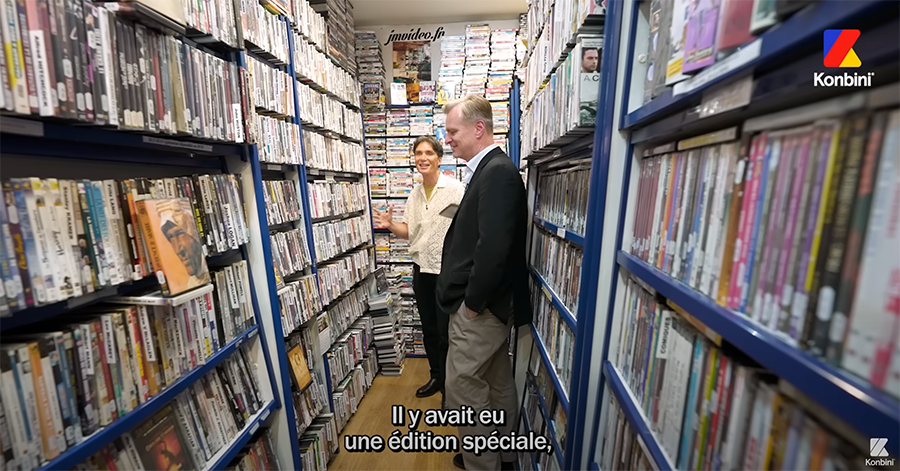
They discussed films from the past 100 years, from all over the world, and made every single one sound interesting. It made me consider how even the act of watching movies can become a craft. While many people may say, “Oh, I’m a film aficionado,” they likely haven’t seen 1% of the films that Wes or Christopher have.
Why does it matter that Wes or Christopher watched more movies than others? It gives them a bigger palette to work from creatively. Wes is known for using imagery from older films in his own work. Even doing this interview, he held up an older movie and said that he basically lifted the entire credit scene — a moving train — for his latest film. His narrow focus helps him do his art even better.
Craft is about showing up. It’s about putting the time and attention into the nuances that matter.
Embrace Your Limits
Doing less helps prevent burnout. To me, it is about respecting our limits and defining limits before we blow past them, which can result in a mental or physical health crisis. Instead of always maxing ourselves out, where a catastrophe is created at the slightest hiccup in life, doing less is inherently about sustainability.
I am reminded of this all the time. Multiple writers I know are having surgery this week, and others talk to me about burnout, or serious mental health struggles. Without leaving margin in your life, managing these things is even more complex.
Sometimes boundaries and limits lead to creating art and experiences that are truly transcendent. I’m from New Jersey, so let me give you a local example:
Years ago I bought this special edition of Bruce Springsteen’s album, Darkness on the Edge of Town. It includes a replica of the notebook he uses to write more than 60 songs for the album.
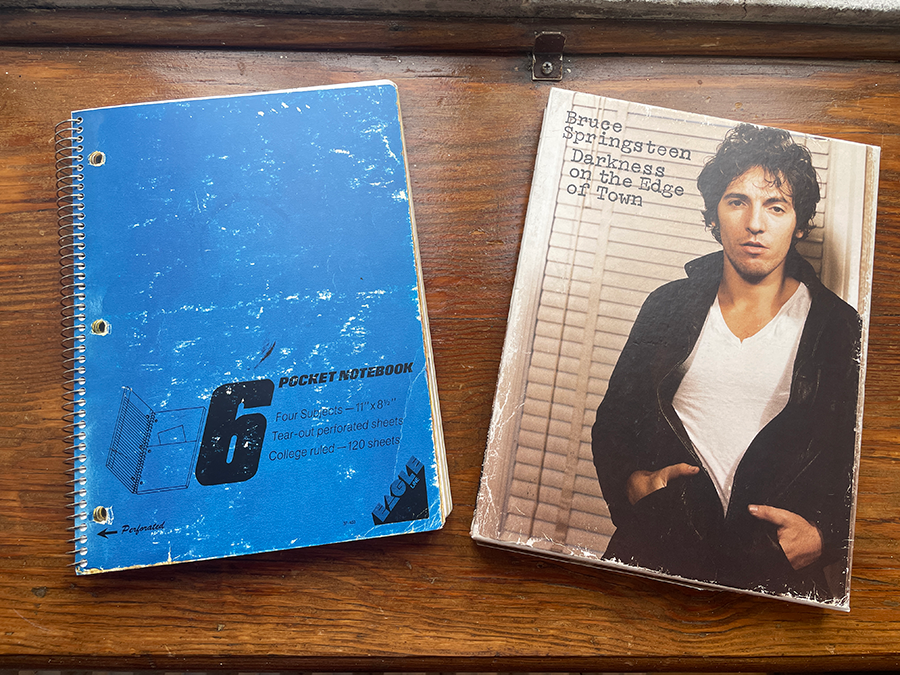
Page after page, you see the writing process of someone incredibly focused:
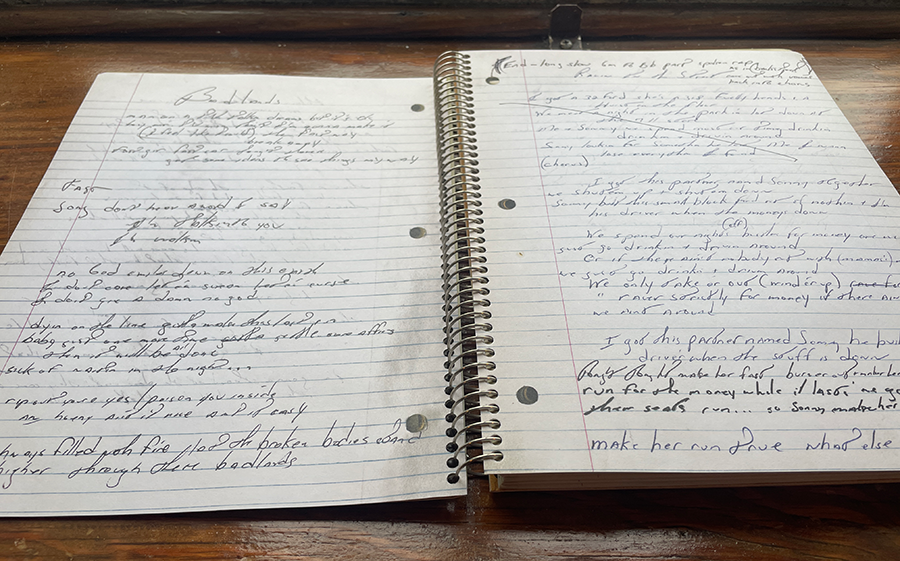
At the time, he couldn’t record because he was trapped in a legal battle with his former manager. There was a real risk that he would lose the rights to his music.
The album itself was a stark change from his previous work which was often uplifting and hopeful about possibility and escaping from that which holds us back. For the Darkness album, Bruce focused on the theme of limits. In previous albums, he would opine about the adventure that awaits on the horizon. But now, the darkness on the edge of town represents the limits that keep us tied to where we are — where we live, our jobs, our families, our obligations, etc.
As they whittle down the songs, the band votes on which songs should make the album:
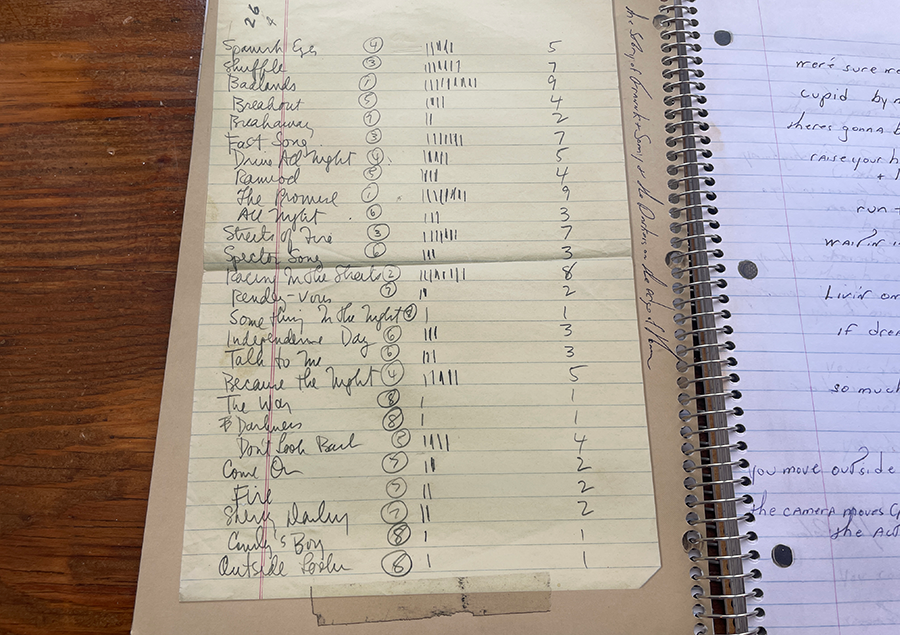
Bruce explores the possible running order for each side of the record. It’s hard to express this to someone who didn’t grow up with records or tapes, but the running order of each side was pivotal. How a side began and ended, and the songs in between would create a transcendent experience, and were critical for the storytelling of the album. Flipping the record or tape was part of the experience, almost like an intermission in a movie:
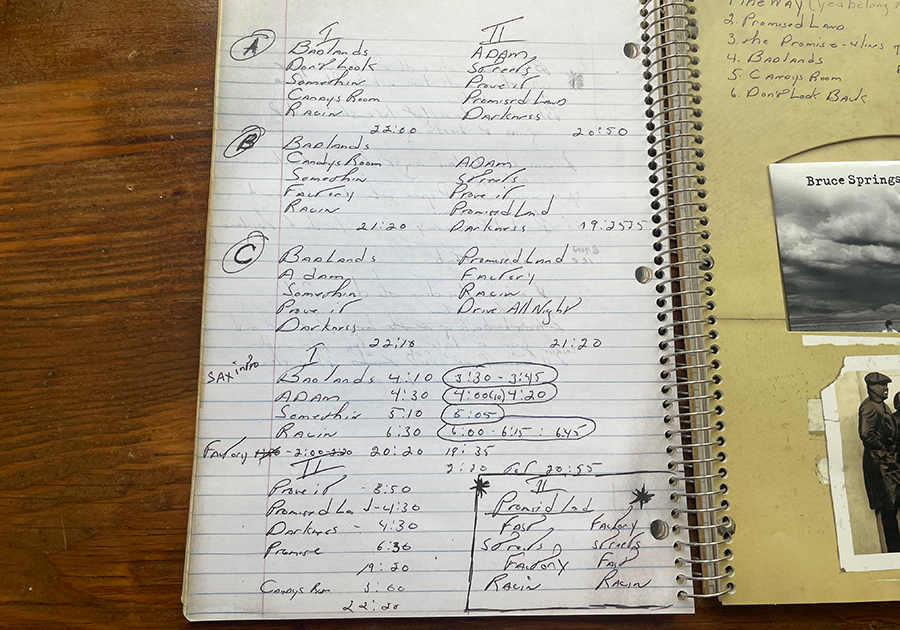
This notebook is Bruce focusing on one thing. For sharing his art, he is well-known for having long concerts that overdeliver, sometimes 3-4 hours long. In other words, he does less, but does the art that matters really well.
This can apply to how you create and how you share. For instance, picking one way of sharing and really doubling-down on it. What if, instead of trying to be vaguely be present in three places online (Instagram, Substack, and Facebook), you put 100% of that energy into truly showing up in your Substack? That could look like many things: from engaging more with ideal readers, to more time writing newsletters, to growing your network with colleagues, etc.
Bruce easily could have written just 10 songs for that album, or gotten away with 45 minute concerts. Instead, he did less, but did it incredibly well.
This didn’t only help him create great art, but a dedicated following of fans. I have spent 10 hours waiting before a concert so that I could get right up front at his concerts. Here is a photo I took at one of them, with Bruce right in front of me, holding the mic out in my direction:
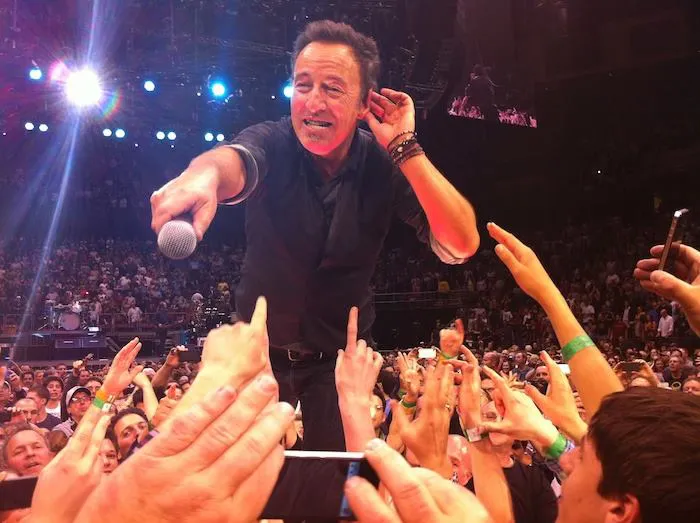
Celebrate Doing Less
Doing less is inherently about showing up fully for that which matters to you. This should be celebrated. In the work I do with writers, they are often hoping others will embrace what they create. This could be their book, newsletter, event, podcast, or so much else. When you do less — and do only what matters deeply — that encourages you to share about these efforts and celebrate them. This makes others aware of what you do and why, and join you in the process.
Let me know in the comments: what is one thing you can do less of? Or, to flip the question: what craft would you like to devote yourself to?
One more thing before we end, I’m so excited to announce my next workshop! Join me on Friday February 16th at 12:30pm ET for Build a Better Book Launch: Essential Steps to Take Way Before Publication Day. This workshop will help you understand how to be public as an writer, develop your platform, and prepare for your book launch, even if that is far in the future. You can find full information and registration here.
Thanks!
-Dan
